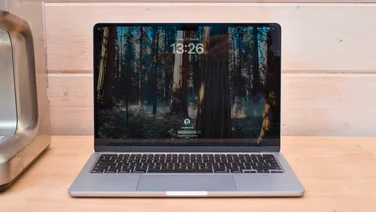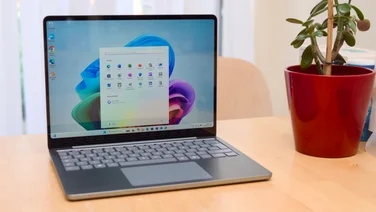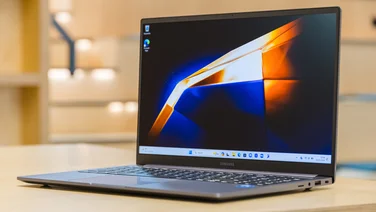To help us provide you with free impartial advice, we may earn a commission if you buy through links on our site. Learn more



The Inspiron M301z is the latest budget ultra-portable laptop from Dell and is the first we’ve seen from the computing giant to use an AMD low voltage processor rather than an Intel chip. The M301z comes equipped with a 1.5GHz Turion II Neo K625 processor. Most of the previous Neo-equipped ultra-portables that we’ve seen from other manufacturers have disappointed us with their poor performance and short battery life, but the M301z is a distinct improvement over those earlier efforts.
The M301z is slender and light, weighing just 1.8kg and measuring just an inch thick. The battery isn’t large and chunky so it doesn’t protrude from the rear. It lasted just under five hours in our light usage test. This should be long enough for most train journeys and short haul flights, but we’ve seen other ultra-portables, especially those equipped with Intel CULV processors, last even longer.

One area where the M301z holds its own against the competition is applications performance. Its scores in our demanding benchmarks were equal to those of Intel CULV-based ultra-portables and it’s faster than any netbook. It’s still slower than a heavier, general purpose laptop of the same price though which isn’t surprising.
There’s 4GB of RAM fitted. You can’t fit any more, but 4GB should be more than enough for most tasks. As expected, its Radeon graphics chip isn’t powerful enough for running the latest 3D games but should be able to cope with older titles.
Unlike previous ultra-portables equipped with Neo processors, the underside of the M301z didn’t become uncomfortably warm as it worked its way through our benchmarks although the cooling fan was a little loud. We were quite taken by the shiny finish of the lid and wrist rest. Although they look metallic, they’re actually made of plastic. They feel reasonably sturdy, but they flexed under pressure more than we’d like. The screen tilts back fairly far so it’s comfortable to use when the M301z is placed on your lap.
The keyboard is comfortable to type on thanks to its large, reasonably responsive keys. They don’t feel quite as responsive as other ultra-portable keyboards we’ve used, but they’re more than good enough for typo-free typing. The large touchpad feels accurate and supports multi-touch gestures, although the buttons don’t give quite as much feedback as we’d like.

We were disappointed with the quality of the 13.3in glossy widescreen display. It’s reasonably bright, but contrast is poor and colours don’t look very accurate due to the uneven backlight and the tight viewing angles. If you want to connect a better quality external monitor, you could use either the HDMI port or the Mini DisplayPort connector. The M301z is one of the first non-Apple laptops we’ve seen to have this socket which is even tinier than the already compact DisplayPort connector. There are few monitors that have Mini DisplayPort though, so you’d almost certainly need an adapter or a special cable.
If the 500GB hard disk isn’t large enough, you can add more storage using the three USB2 ports, one of which doubles as an eSATA port for connecting even faster external storage. The integrated speakers aren’t very loud and, unsurprisingly, have very weak bass but they sound reasonably clear and don’t distort at high volumes.

The Inspiron M301z is a slender and attractive ultra-portable laptop with surprisingly good Windows performance and reasonably lengthy battery life. It’s inexpensive too at just £529. However, Lenovo’s 13in ThinkPad Edge lasted an hour longer in our battery test yet costs £79 less from Laptops Direct. Its underside does get noticeably warmer than the M301z’s, but if you can live with this then it’s the better deal.






